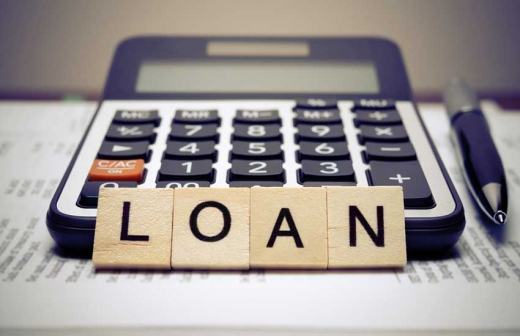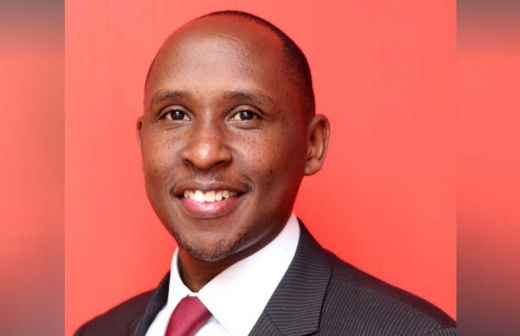
Two financial experts; Shiv Arora, the financial controller at Cytonn Investments shares what to watch for before you get the loan and Waithaka Gatumia a financial consultant at Centonomy, weighs in on managing your existing debt.
THINKING OF GETTING THAT LOAN?
1. Always business...never personal
Always consider two questions; 1. Will you get your money back? 2. Will it grow?

Then, when you borrow for investment, it is positive only if your investment return is more than the cost of debt.
You should borrow towards growing your wealth. For example, if you are borrowing at 14 per cent in the market and invest in something that gives you 25 per cent, then borrowing is the right thing to do.
That is good debt. However, borrowing the 14 per cent for personal consumption, such as going on holiday would be bad debt.
As long as you are smart about debt and use it the right way then it should be beneficial, and not something that people need to be afraid of.
2. Do the math first
Don't get a loan before you plan for it. Do the math and see if you can really afford it, then make a plan of action on how to pay it back.
When making the plan, look at what areas you need to reduce debt and which areas you need to borrow towards. That will help you know how much your monthly payment obligation will be once the repayment period starts.
The plan of action lets you know how much you will be spending every month to pay back your debt and what is available for you in other areas.
That way, you do not overspend before you pay off your debt. Use the cost of credit calculator, which is a recent development by the Central Bank and that is run by the Kenya Bankers Association.
It helps you know how much you will really be paying once you borrow. You can find it at www.costofcredit.co.ke
3. Don’t rely on anticipated income
Don't rely on income which you may get. Don't borrow based on knowing that you might be getting some money in the future.
You should plan for your debt based on the stream of income that you are already getting every month. Use income that you can see, not that which you can't see.
4. Tighten your belt
You can only indulge in your fancies with the money left over after you have invested, paid back your debt and spent what you need to on a monthly.
Resist the peer pressure of having to buy things when you know you will have to borrow to buy.
5. Invest before you spend.
Having an investment helps you make sure that you are putting money away for the right reasons. That way, you won't be left in a financial crisis where you need to borrow on your expenditures.
It helps you create a pool of emergency money which you might need in future. When that emergency comes, you won't need to borrow and get into a debt crisis because you will already have investments stashed away.
ALREADY IN A DEBT CRISIS?
1. Hit the brakes
STOP accumulating bad debt. Sit down and list all your debts and plan on how to pay them. Talk to the financial institutions you owe.

They are usually very willing to assist. They could give you great insight and help you make a payment plan.
It is usually so hard for them to recover loans through auctions that they would much rather sit and work out a repayment plan with you. In most cases, working with you is more profitable for them as well.
2. Switch banks if you need to
The introduction of the credit reference bureaus has been a game changer in the Kenyan market. Now you are able to carry your credit score from one institution to another.
The lenders can quickly assess your creditworthiness and avail credit to you at an appropriate interest rate without lengthy introductions. Their introduction will in time result in the stabilisation of the credit market and possibly allow for lending to more risky ventures such as start-ups in the future.
3. Prioritise your debt
If you have any debt, ensure you can afford the repayments and commit to paying it off as quickly as possible. Prioritise debt repayment in your monthly budget to ensure you are never behind on your payments.
Early repayments have a major effect on the overall interest you repay. So try and repay the loan as quickly as possible.
Use the returns from the asset you purchased to help pay down the debt e.g. If you purchased an apartment, use the rental income to help repay the loan.
4. Don't make it a cycle
Never use one debt to pay off another, the cycle will never end. Also, sticking to minimum repayments will keep you in debt much longer.
Consider increasing your repayment amounts. Stay clear of the top-up syndrome. Every top up extends the loan and increases your debt.
The sales agent will always try and upsell and tell you that you are eligible for more debt. Don't be tempted to consider that.
Take only the debt that you need for your investment and not the maximum you are eligible
 The Standard Group Plc is a multi-media organization with investments in media
platforms spanning newspaper print
operations, television, radio broadcasting, digital and online services. The
Standard Group is recognized as a
leading multi-media house in Kenya with a key influence in matters of national and
international interest.
The Standard Group Plc is a multi-media organization with investments in media
platforms spanning newspaper print
operations, television, radio broadcasting, digital and online services. The
Standard Group is recognized as a
leading multi-media house in Kenya with a key influence in matters of national and
international interest.









